Part 1
“Come rise you up, John Simpson,” the governor did say,
“These scum are chained and ready, and it's time you was away;
Three woman and a `farthing-child', to Plymouth they are bound,
And you must be their escort till they reach that distant town.”
When me and these poor convicts did arrive at Plymouth strand,
I marched them up onto the deck all chain-ed hand to hand.
The captain saw us come aboard and he did prove unkind,
“The women come,” he did declare, “But the infant stays behind.”
This proud unfeeling seaman, Captain Gilbert was his name,
Oh, to see a babe abandoned so, I swore it was a shame;
I wrapped it up in my great-coat, to the coach I went straightway
And I started out for London Town without no more delay.
Part 2
Now when I came to London, having rode two hundred mile,
To see a turnkey nurse a babe, it cause the crowd to smile
But hearings its sad history, it made the crowd to groan,
And many a worthy citizen swore justice would be done.
Then up and spoke a gentleman and loudly did declare
That only one man in the land could settle the affair.
So to Lord Sydney's house I went, the crowd did follow on,
For they swore they would see Charity before the day was done.
When we came to Lord Sydney's house, it was the hour of nine,
We all came bursting in on him as he sat down to dine.
He listened to my story and his countenance was grave,
Then declared that ere the week was out, the family would be saved.
Lord Sydney wrote two letters and he signed them with his hand,
One to Plymouth, one to Norwich, bidding them to understand
That young Cabell and the baby with Susannah were to go
As a united family unto that distant shore.
Now I'm home again in Norwich but some other trade I'll seek
As a coachman or a waggoner, a shopman or a sweep,
Perhaps I'll take the shilling or go wear the jacket blue.
There's no trade but it's the kinder, so locks and bars, adieu!
inviata da Dq82 - 4/1/2018 - 15:08
×
![]()

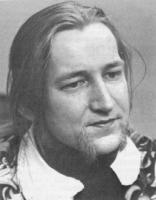

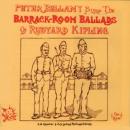
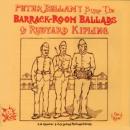
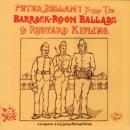
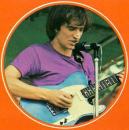

The Transports
This unique project relates the true story of Henry Cabell and Susannah Holmes, convicts transported to Australia on the “First Fleet” in 1787 and the trials and tribulations which culminated in that historic voyage. The tale is presented as a cycle of new compositions in the idiom of traditional English folk song, linked by narrative passages in the style and to the melodies of broadsheet ballads of the time. The orchestral passages and arrangements for the accompanied songs have been conveived in such a way as to underline the overall feeling of “period” and the instruments used are those likely to have been heard in the church bands or “quires” of East Anglian villages in those days. The singers have been chosen from the front rank of the English folk song revival, and the melodies composed to suit their individual style. A detailed account of the historical background to the story by Eric Fowler (the man who originally researched it) is included in the booklet.
mainlynorfolk.info
Henry Cabell: Mike Waterson
Susannah Holmes: Norma Waterson
The Turnkey: Martin Carthy
The Father: Nic Jones
The Mother: June Tabor
Abe Carman:A.L. Lloyd
The Shantyman: Cyril Tawney
The Convict: Martin Winsor
The Coachman: Vic Legg
The Transport: The Watersons
Street Singer: Peter Bellamy
The Ensemble
Rod Skeaping: director;
Philippa Davies: flute;
Sophia Wilson: oboe;
Keith Thomlinson: whistle, garklein-flötlein;
Felix Warnock: bassoon;
Alan Lumsden: serpent;
Oliver Brookes: cello;
Dave Swarbrick (Ian Campbell Group e Fairport Convention): violin on The Ballad of Henry and Susannah
Un’opera che racconta una storia vera, quella di Henry Cabell e Susannah Holmes, “two poor fellows” che nel 1783 furono condannati alla deportazione per aver commesso dei furti a causa della miseria. I due erano amanti e dalla loro relazione era nato un bimbo ma ai due non fu in un primo momento concesso di sposarsi e la famigliola corse il serio rischio di essere smembrata. Uno dei loro carcerieri s’impietosì e intercesse per loro presso il ministro dell’interno. Questa è la ballata del secondino.
Così Henry e Susannah poterono unirsi in matrimonio e nel 1787, dando corso alla sentenza, furono imbarcati con il figlioletto su uno degli 11 vascelli del convoglio battezzato “First Fleet”, il primo trasporto verso l’Australia. Dopo 250 tremendi giorni di navigazione le navi approdarono nell’attuale zona di Botany Bay (Sidney), dove fu allestito il primo insediamento europeo e anche la prima colonia penale inglese nel continente australiano.